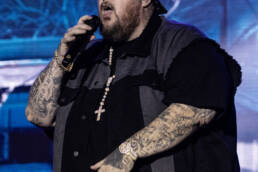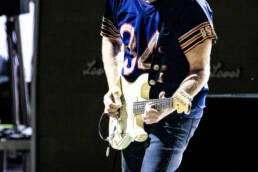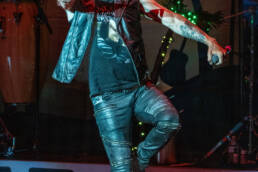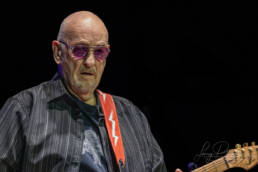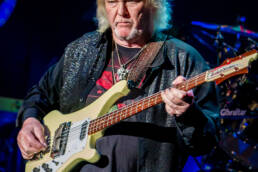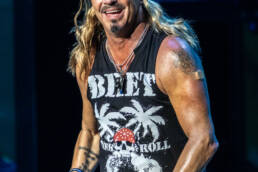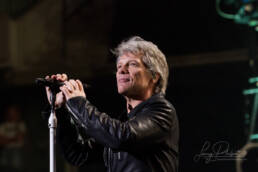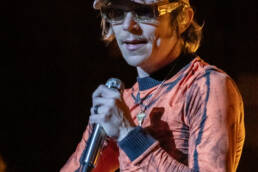Jeff Beck: The Guitar Wizard Who Redefined Rock
The Spark That Ignited His Musical Passion
Jeff Beck’s love for the guitar was instant, electric. At ten, he heard Les Paul’s innovative recordings, and something clicked. Consequently, he borrowed a neighbor’s acoustic, strumming until his fingers bled. Then, rock ‘n’ roll hit—Chuck Berry, Gene Vincent, Eddie Cochran. Their raw energy captivated him. Yet, it was the guitar’s voice, its ability to scream and weep, that drove him. So, he pursued music to push boundaries, to make the instrument speak like no one else.
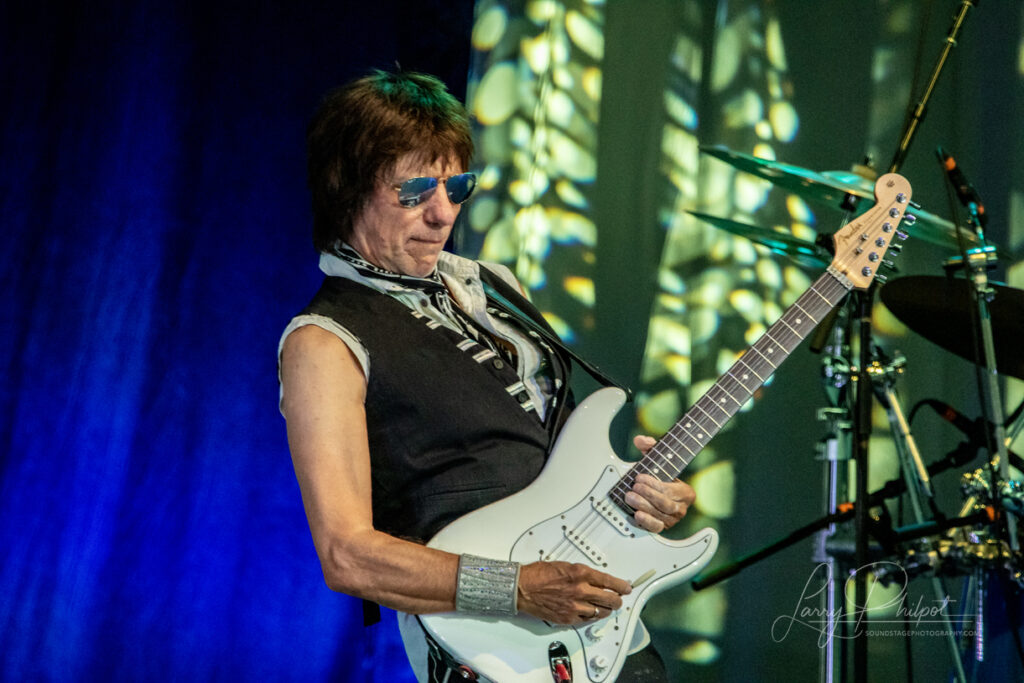
A Life Shaped by Sound and Rebellion
Geoffrey Arnold Beck was born on June 24, 1944, in Wallington, Surrey, England. His father, Arnold, was an accountant, while his mother, Ethel, encouraged his creativity. Music filled their home—jazz, classical, and early rock. However, Beck was a restless kid, drawn to rebellion. At thirteen, he built his own guitar, frustrated by store-bought models. Meanwhile, art school beckoned, but music won out. By sixteen, he was gigging in local bands, chasing a bigger stage.
His early years were scrappy. He played in semi-pro outfits like The Nightshift and The Tridents, honing his bluesy style. Then, in 1965, a call changed everything. The Yardbirds, needing a guitarist to replace Eric Clapton, recruited Beck. This launched his career, but his restless spirit kept him moving. Addiction and health struggles later tested him, yet his guitar remained his anchor. Beck’s life was a quest for innovation, never settling.
A Career of Reinvention and Mastery
Beck’s career began with The Yardbirds (1965–1966), where he joined Jimmy Page, Keith Relf, Chris Dreja, and Jim McCarty. His experimental riffs shaped hits like “Heart Full of Soul.” However, his unpredictable nature led to his exit. Then, he formed The Jeff Beck Group in 1967 with Rod Stewart (vocals), Ronnie Wood (bass), and Mickey Waller (drums). Their debut, Truth (1968), pioneered heavy blues-rock, influencing Led Zeppelin. Yet, tensions with Stewart dissolved the group by 1972.
Beck reinvented himself again. Beck, Bogert & Appice (1972–1974), with Tim Bogert and Carmine Appice, leaned into hard rock. Meanwhile, his solo instrumental work, starting with Blow by Blow (1975), blended jazz, rock, and funk. Produced by George Martin, it hit number four on the Billboard 200. Albums like Wired (1976) and There and Back (1980) followed, showcasing his virtuosity. Later, Jeff (2003) embraced electronica, proving his adaptability. His final album, 18 (2022), with Johnny Depp, was a bold capstone.
Collaborations
Beck collaborated widely. He joined David Bowie for a 1973 session and played on Tina Turner’s Private Dancer (1984). Additionally, he toured with Stevie Wonder, inspiring “Superstition’s” riff. His work with Imelda May and Joss Stone showed his range. Meanwhile, guest spots with Mick Jagger, Roger Waters, and ZZ Top kept him relevant. His bands were fluid, but later lineups featured Vinnie Colaiuta (drums), Tal Wilkenfeld (bass), and Rhonda Smith (bass).
Some of his relationships with artists made headlines. His rivalry with Clapton and Page, fellow Yardbirds alumni, fueled tabloid chatter. However, mutual respect prevailed. His friendship with Depp, culminating in 18, drew scrutiny due to Depp’s legal battles, but Beck stayed focused. Additionally, his marriage to Sandra Cash in 2005 brought stability after years of tumultuous romances. His low-key personality kept personal scandals minimal.
Beck’s media appearances were sporadic. He performed on Top of the Pops in 1968, shredding with The Jeff Beck Group. His music featured in films like Casino (1995) and The Boat That Rocked (2009). Furthermore, he appeared in documentaries like Still on the Run (2018), detailing his Yardbirds days. In 2011, he played BBC’s Later… with Jools Holland, stunning audiences. His focus remained live performance, not screen time.
Awards and Lasting Recognition
Beck’s genius earned accolades. He won eight Grammy Awards, including Best Rock Instrumental for “Nessun Dorma” (2010). In 1992, he was inducted into the Rock and Roll Hall of Fame with The Yardbirds, and again in 2009 as a solo artist. Additionally, Rolling Stone ranked him fifth among guitarists in 2015. In 2014, he received the Ivor Novello Award for Outstanding Contribution. His peers, from Santana to Slash, hailed him as a pioneer. Beck’s influence shaped generations of players.
Biggest Songs and Their Creators
- Hi Ho Silver Lining (1967): Written by Scott English and Larry Weiss, Beck’s vocal hit became a UK classic.
- Beck’s Bolero (Truth, 1968): Penned by Jimmy Page, Beck’s instrumental showcased his fiery technique.
- People Get Ready (Flash, 1985): Curtis Mayfield wrote this soulful cover, featuring Rod Stewart.
- Cause We’ve Ended as Lovers (Blow by Blow, 1975): Stevie Wonder’s composition, reimagined by Beck, was a jazz-rock gem.
Controversies That Stirred Debate
Beck’s career was relatively clean, but sparks flew occasionally. In 1966, his erratic behavior with The Yardbirds—missing gigs, clashing with bandmates—led to his firing. Consequently, fans speculated about drug use, though Beck cited exhaustion. Then, in 2022, his album with Johnny Depp drew criticism. Some accused Beck of aligning with Depp amid the actor’s defamation trial. However, Beck avoided comment, letting the music stand. Additionally, his 1973 refusal to join The Rolling Stones after Mick Taylor’s exit fueled rumors of arrogance, but Beck simply valued his freedom. His outspoken disdain for commercial pop also ruffled feathers, yet it cemented his authenticity.
A Night of Magic at Ronnie Scott’s
In November 2007, Beck played a legendary set at Ronnie Scott’s Jazz Club in London, captured for a live DVD. The intimate venue hummed with anticipation. As he launched into “Beck’s Bolero,” his Stratocaster wailed, notes bending impossibly. Then, he shared a rare story. As a teen, he’d snuck into jazz clubs, dreaming of such stages. “This feels like home,” he grinned. Later, Imelda May joined for “People Get Ready,” her voice soaring with his riffs. The crowd, packed tight, erupted after every solo. For two hours, Beck’s fingers danced—jazz, blues, rock, all seamless. When Eric Clapton appeared for a surprise jam on “Little Brown Bird,” the room shook. That night, Beck wasn’t just a guitarist; he was a sorcerer, conjuring sounds that lingered long after.
